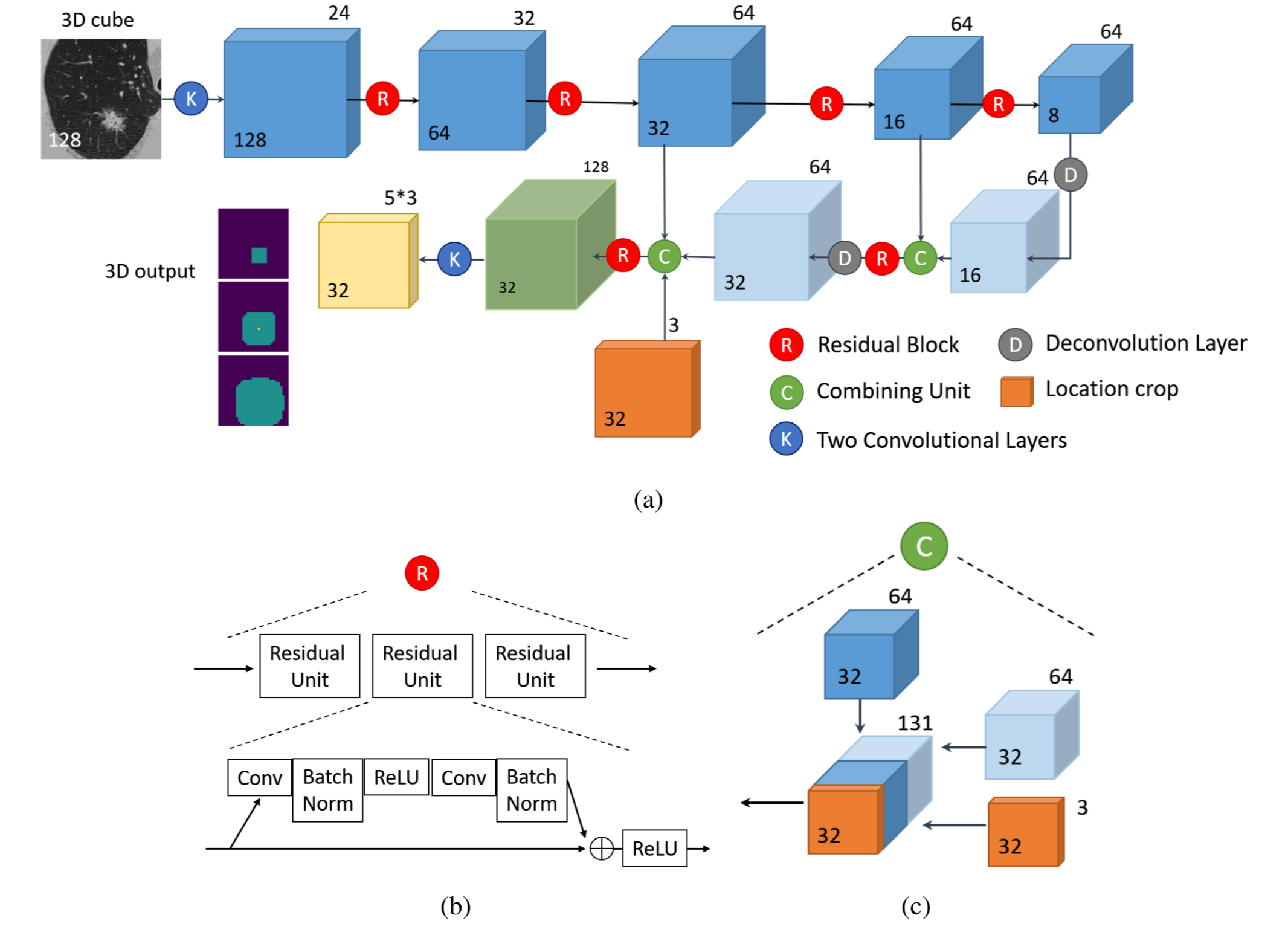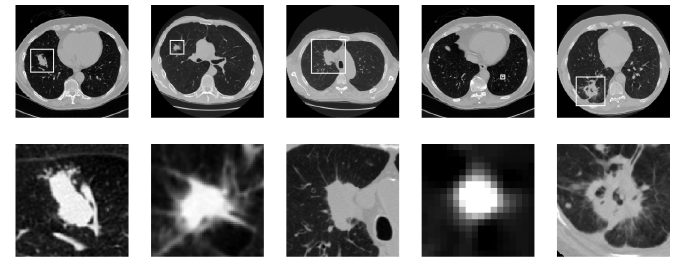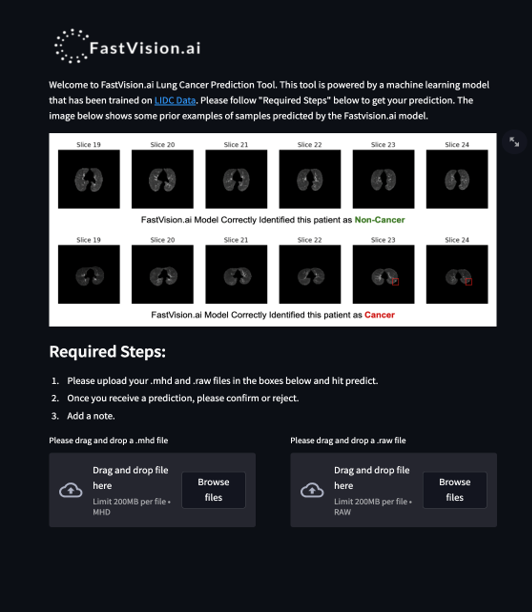FastVision.ai
Mission
FastVision.ai is at the forefront of applying cutting-edge artificial intelligence (AI) and deep learning technologies to transform healthcare, specifically in the realm of medical imaging. Our mission is to revolutionize the way medical professionals diagnose and treat patients, providing faster and more accurate solutions that lead to better patient outcomes, particularly in the critical domain of lung cancer detection and management.
Methodology
Transforming Lung Cancer Diagnosis with FastVision.ai: Our cutting-edge platform harnesses the power of deep learning to revolutionize lung cancer detection and diagnosis. By seamlessly integrating 3D CNNs and UNET segmentation with state-of-the-art image processing techniques, our system delivers unparalleled accuracy and precision in identifying lung nodules.
Leveraging a diverse dataset of lung CT scans carefully curated from multiple sources, our algorithms have been meticulously trained to detect even the smallest anomalies within the lungs. Through extensive fine-tuning and optimization, our models have achieved exceptional sensitivity and specificity, minimizing false positives and false negatives.
FastVision.ai empowers radiologists with an intelligent and intuitive tool that augments their expertise, streamlining the diagnostic workflow and expediting critical decision-making. Our interactive web application enables radiologists to upload CT scans with ease and receive real-time results, allowing for immediate action and timely patient care.
By collaborating closely with medical experts, our platform ensures that the outputs are clinically relevant and readily interpretable. The human-machine partnership leads to better diagnoses, earlier interventions, and ultimately improved patient outcomes.
We pride ourselves on maintaining the highest standards of regulatory compliance and ethical considerations, safeguarding patient privacy and data security at every step of the process.
Experience the future of lung cancer diagnosis with FastVision.ai, where cutting-edge technology and medical expertise converge to create a profound impact in the fight against lung cancer.
Lung Segmentation Model (UNET)
Lung Nodule Prediction Model (3D CNN)
Data Source
- National Cancer Imaging Archive, specifically the LIDC-IDRI dataset (Lung Imaging Database Consortium and Image Database Resource Initiative) as our primary data source. The dataset includes a diverse collection of lung CT scans, encompassing both positive and negative cases of nodules, along with associated clinical information.
- The NSCLC Radiogenomics dataset is a comprehensive collection of radiomic features and genomic data of non-small cell lung cancer (NSCLC) patients. It provides a unique resource for studying the relationship between imaging features and genomics in lung cancer. The dataset includes radiomic features extracted from CT images of NSCLC tumors, as well as genomic data, clinical information, and patient outcomes. This dataset is designed to enable researchers like us, to investigate the potential of radiomics for predicting patient prognosis and understanding the underlying biological processes.
Acknowledgements
- We would like to extend our sincere gratitude to all the individuals who have contributed to the successful completion of this project. First and foremost, we would like to thank our classmates, whose support and collaboration have been invaluable throughout the entire journey. Your encouragement and insights have been instrumental in shaping our ideas and refining our approach.
- We express our sincere gratitude to Dr. Alberto Todeschini and Prof. Cornelia Ilin for their invaluable mentorship and guidance throughout this project. Their expertise in data science, dedication to teaching, and constructive criticism have profoundly enriched our work and played a pivotal role in shaping our research approach.
- Finally, our heartfelt thanks go to all the radiologists and subject matter experts who generously contributed their time and expertise to provide valuable insights and annotations for our research. Your expertise has been pivotal in ensuring the accuracy and relevance of our findings.
















